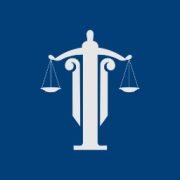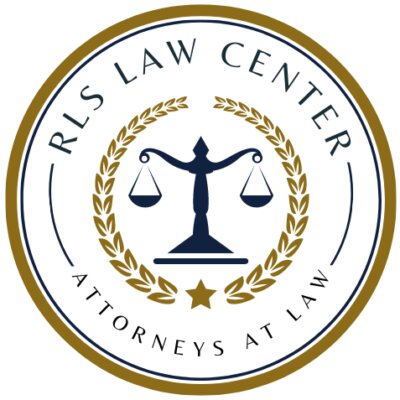Best Juvenile Law Lawyers in Philippines
Share your needs with us, get contacted by law firms.
Free. Takes 2 min.
Or refine your search by selecting a city:
List of the best lawyers in Philippines

Dagsaan Monterde Castillo Law and Notary Public (DMC LAW)
15 minutes Free ConsultationAbout Juvenile Law in the Philippines
Juvenile Law in the Philippines is designed to protect and assist minors who come into conflict with the law. The legal framework is primarily based on the Juvenile Justice and Welfare Act, officially known as Republic Act No. 9344. This law, enacted in 2006, aims to create a comprehensive juvenile justice system that rehabilitates rather than punishes young offenders. Additionally, it establishes measures for the prevention of juvenile delinquency, effective intervention, and diversion programs. These measures reflect the Philippines' commitment to child rights and welfare, ensuring that minors are treated with empathy and fairness within the justice system.
Why You May Need a Lawyer
There are several scenarios where individuals may require legal assistance in the field of Juvenile Law in the Philippines. If a minor is accused of committing a crime, legal counsel is vital to navigate the juvenile justice system effectively. Lawyers can advocate for appropriate intervention programs or diversionary measures instead of detention. Additionally, parents or guardians might seek legal advice when handling cases of child custody, child protection issues, or if a minor’s rights appear to be compromised within institutional settings. Legal experts can also provide guidance on complying with various legal requirements and proceedings involving minors.
Local Laws Overview
The Juvenile Justice and Welfare Act of 2006 is the cornerstone of Juvenile Law in the Philippines. Key aspects include the establishment of Diversion Programs, which aim to rehabilitate youth offenders without resorting to formal court proceedings. This law stipulates that children under the age of 15 are exempt from criminal responsibility but are subject to intervention programs. For those aged 15 to below 18, criminal responsibility can be established only if they act with discernment, subjecting them to diversion programs instead of imprisonment. The law further emphasizes the importance of restoring community relationships and integrating juveniles back into society.
Frequently Asked Questions
What is the age of criminal responsibility in the Philippines?
The minimum age of criminal responsibility in the Philippines is 15 years. However, children aged 15 to below 18 may only be held criminally responsible if they acted with discernment.
What happens if a minor is apprehended by the police?
If a minor is apprehended, the police are required to immediately turn the child over to local social welfare and development offices for appropriate action. Legal proceedings, if any, aim to prioritize rehabilitation.
What are Diversion Programs?
Diversion Programs are alternatives to judicial proceedings that provide restorative justice options like community service, counseling, and family conferencing to guide juvenile offenders back into society without formal court charges.
Are minors held in the same facilities as adult offenders?
No, minors are not held in the same facilities as adult offenders. They are placed in youth detention centers specifically designed for rehabilitation in a child-friendly environment.
Can a juvenile record affect future employment?
Juvenile records are typically confidential and should not affect future employment. Law also grants opportunities for sealing records once the individual reaches adult age, protecting their re-entry into society.
How does the law protect the rights of minors in judicial processes?
The law ensures that minors have the right to legal representation and the right to privacy. It mandates that all actions taken are in the best interest of the child, focusing on rehabilitation over punitive measures.
What constitutes ‘acting with discernment’ in juvenile cases?
'Acting with discernment' means the ability to understand the difference between right and wrong and the consequences of one’s actions. This is determined by trained professionals during juvenile assessments.
Are parents or guardians held responsible for a minor's actions?
While parents are not legally liable for a minor’s criminal acts, they can be required to participate in diversion programs or rehabilitation measures to support their child’s reformation process.
What services are available for rehabilitation of juvenile offenders?
Comprehensive rehabilitation services include psychological counseling, skills training, formal education programs, and community integration schemes, all aimed at helping the minor return to a constructive role in society.
Can a minor apply for bail in the Philippines?
Yes, a minor can apply for bail, but the process prioritizes release on recognizance or placement in a youth care facility over monetary bail, considering the minor’s welfare and availability of diversion options.
Additional Resources
To gain more insights or seek help regarding Juvenile Law in the Philippines, it is advisable to connect with relevant organizations and government bodies such as the Department of Social Welfare and Development (DSWD), the Juvenile Justice and Welfare Council (JJWC), and child protection advocacy groups like the Children's Legal Rights and Development Center (CLRDC). These bodies can offer guidance, resources, and professional assistance tailored to juvenile law issues.
Next Steps
If you or someone you know requires legal assistance in the field of Juvenile Law, consider consulting a lawyer who specializes in juvenile cases in the Philippines. It is beneficial to prepare documents detailing the case, seek recommendations, and approach child welfare advocacy groups for support and advice. Engaging with community legal aid or seeking free legal assistance from public attorney’s offices can also be practical first steps. Remember, the focus is to ensure that minors receive due process and access to rehabilitation for a hopeful integration back into society.
Lawzana helps you find the best lawyers and law firms in Philippines through a curated and pre-screened list of qualified legal professionals. Our platform offers rankings and detailed profiles of attorneys and law firms, allowing you to compare based on practice areas, including Juvenile Law, experience, and client feedback.
Each profile includes a description of the firm's areas of practice, client reviews, team members and partners, year of establishment, spoken languages, office locations, contact information, social media presence, and any published articles or resources. Most firms on our platform speak English and are experienced in both local and international legal matters.
Get a quote from top-rated law firms in Philippines — quickly, securely, and without unnecessary hassle.
Disclaimer:
The information provided on this page is for general informational purposes only and does not constitute legal advice. While we strive to ensure the accuracy and relevance of the content, legal information may change over time, and interpretations of the law can vary. You should always consult with a qualified legal professional for advice specific to your situation.
We disclaim all liability for actions taken or not taken based on the content of this page. If you believe any information is incorrect or outdated, please contact us, and we will review and update it where appropriate.
Browse juvenile law law firms by city in Philippines
Refine your search by selecting a city.














